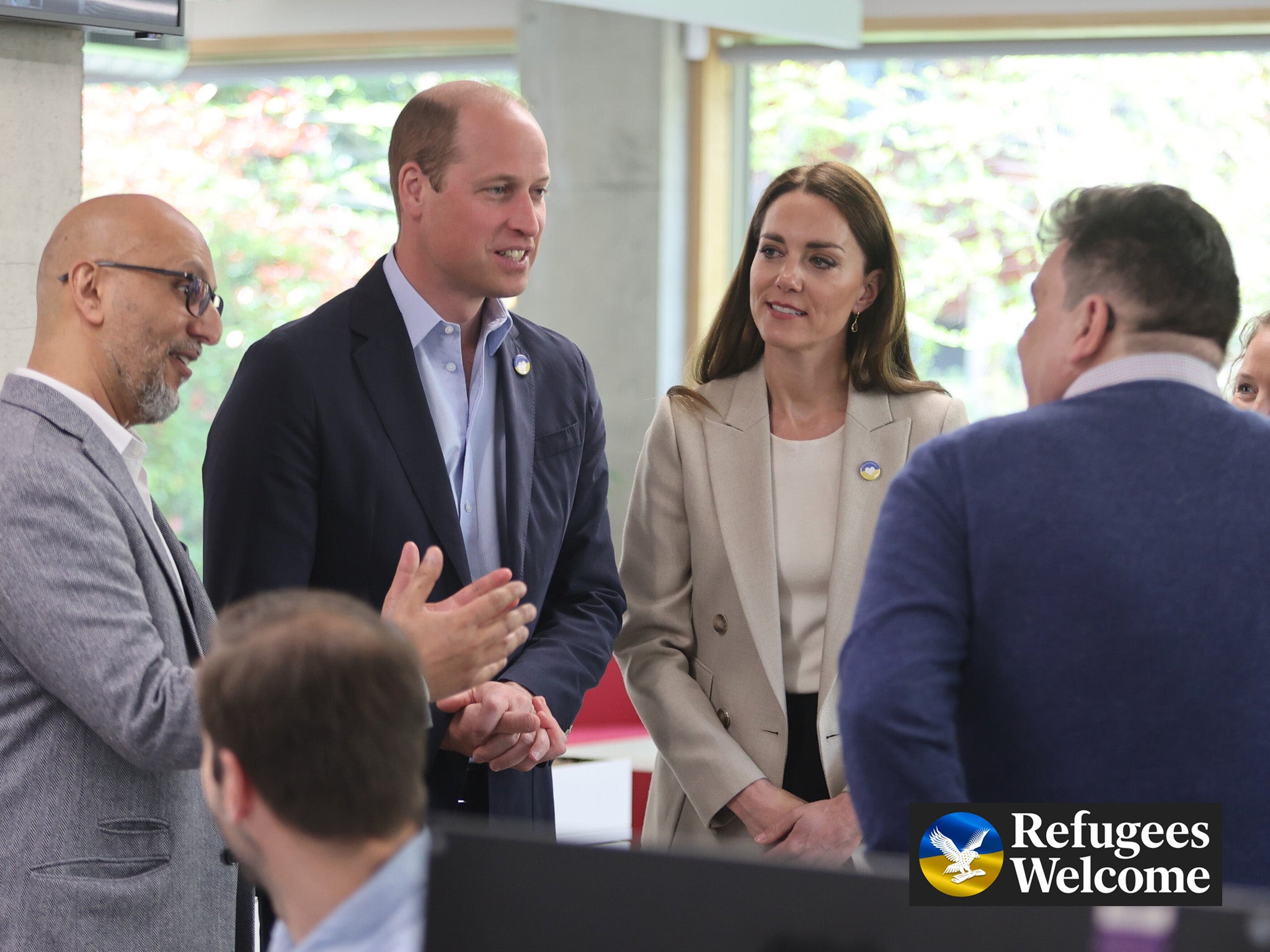The Duke and Duchess of Cambridge mark DEC Ukraine humanitarian appeal reaching over £300m
William and Kate heard from aid workers in Ukraine and neighbouring countries during their visit to the London offices of the Disasters Emergency Committee

The Duke and Duchess of Cambridge yesterday visited the London offices of the Disasters Emergency Committee where it was announced that the DEC Ukraine humanitarian appeal has now raised over £300m - of which £75m has already been drawn down for spending within the first six months.
The duke and duchess heard from aid workers in Ukraine and neighbouring countries about how the DEC – the beneficiary of our Refugees Welcome appeal – is using millions raised to help people in need.
Rachael Cummings of Save the Children in Ukraine told Prince William: “DEC funds have meant we’ve been able to scale up our existing work. We’re building our response to providing mobile health units, trauma kits, pharmaceuticals, medical equipment, nutrition support and safe drinking water.”
Vanessa Maynard of Christian Aid, added: “I’ve just returned from Hungary where we’re helping integrate refugees into communities by supporting them with group cash so they can decide for themselves how best to address their specific needs, like buying nappies, paying rent, or pet food. We’re also providing hot meals, temporary rest in community centres, safe spaces for children to receive trauma care, andinformation on their rights when they arrive in the host countries.”
The royal visit came as the 13 DEC member charities laid out their initial spending plans for the first six months of the crisis. Collectively they said they intend to disburse 22 per cent of the £75m on cash handouts, with 21 per cent set aside for primary healthcare in the form of trauma kits, first aid kits, oxygen compressors and pharmaceutical products.
Other spending priorities include food (13 per cent), hygiene kits (10 per cent) and the provision of safe psychosocial spaces for refugees, including stress management training (9 per cent). The funds allocation between the 13 member charities – based on a formula linked to the size of each charity’s income and expenditure – will see the three largest allotments go to Save the Children (20 per cent), Oxfam (18.71 per cent) and the British Red Cross (13.71 per cent), with the 10 other charities each receiving between 3 and 7 per cent.
The Independent has set up a petition calling on the UK government to be at the forefront of the international community offering aid and support to those in Ukraine. To sign the petition click here.
A DEC spokesperson said: “This money is ring-fenced for spending on the Ukraine humanitarian crisis andfollows the charities each carrying out rapid needs assessments. Their plans show that 55 per cent will be spent inside Ukraine.
“In phase one of the appeal, which covers the first six months, charities will prioritise essential services such as food, essential household items, health and medical support, water, hygiene, mental health and psychosocial support. The second phase lasting the next two and a half years will focus on recovery and reconstruction or ongoing emergency relief.”
The Independent has a proud history of campaigning for the rights of the most vulnerable, and we first ran our Refugees Welcome campaign during the war in Syria in 2015. Now, as we renew our campaign and launch this petition in the wake of the Ukrainian crisis, we are calling on the government to go further and faster to ensure help is delivered. To find out more about our Refugees Welcome campaign, click here. To sign the petition click here. If you would like to donate then please click here for our GoFundMe page
Join our commenting forum
Join thought-provoking conversations, follow other Independent readers and see their replies
Comments
Bookmark popover
Removed from bookmarks